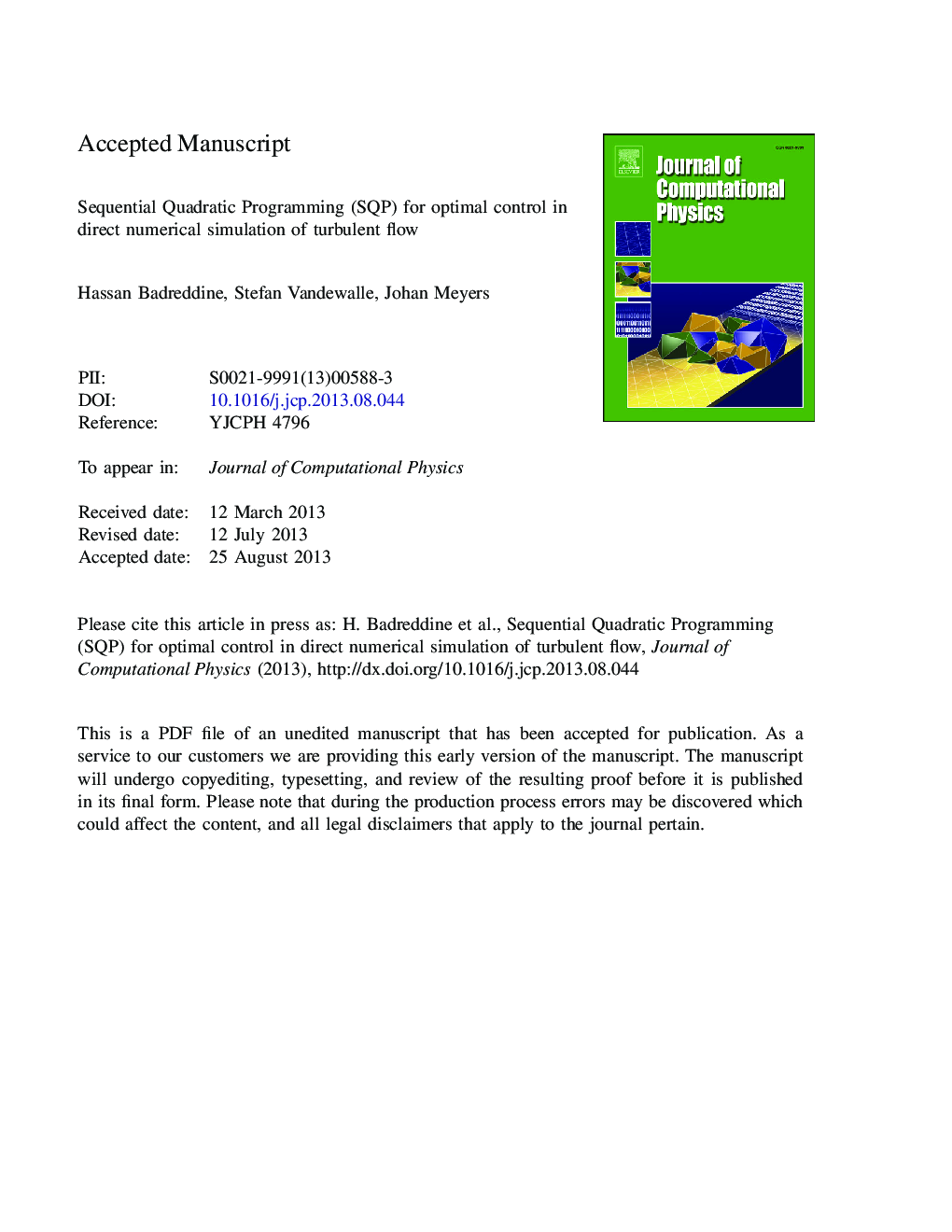| کد مقاله | کد نشریه | سال انتشار | مقاله انگلیسی | نسخه تمام متن |
|---|---|---|---|---|
| 6933031 | 867650 | 2014 | 20 صفحه PDF | دانلود رایگان |
عنوان انگلیسی مقاله ISI
Sequential Quadratic Programming (SQP) for optimal control in direct numerical simulation of turbulent flow
دانلود مقاله + سفارش ترجمه
دانلود مقاله ISI انگلیسی
رایگان برای ایرانیان
کلمات کلیدی
موضوعات مرتبط
مهندسی و علوم پایه
مهندسی کامپیوتر
نرم افزارهای علوم کامپیوتر
پیش نمایش صفحه اول مقاله

چکیده انگلیسی
The current work focuses on the development and application of an efficient algorithm for optimization of three-dimensional turbulent flows, simulated using Direct Numerical Simulation (DNS) or Large-Eddy Simulations, and further characterized by large-dimensional optimization-parameter spaces. The optimization algorithm is based on Sequential Quadratic Programming (SQP) in combination with a damped formulation of the limited-memory BFGS method. The latter is suitable for solving large-scale constrained optimization problems whose Hessian matrices cannot be computed and stored at a reasonable cost. We combine the algorithm with a line-search merit function based on an L1-norm to enforce the convergence from any remote point. It is first shown that the proposed form of the damped L-BFGS algorithm is suitable for solving equality constrained Rosenbrock type functions. Then, we apply the algorithm to an optimal-control test problem that consists of finding the optimal initial perturbations to a turbulent temporal mixing layer such that mixing is improved at the end of a simulation time horizon T. The controls are further subject to a non-linear equality constraint on the total control energy. DNSs are used to resolve all turbulent scales of motion, and a continuous adjoint formulation is employed to calculate the gradient of the cost functionals. We compare the convergence speed of the SQP L-BFGS algorithm to a conventional non-linear conjugate-gradient method (i.e. the current standard in DNS-based optimal control), and find that the SQP algorithm is more than an order of magnitude faster than the conjugate-gradient method.
ناشر
Database: Elsevier - ScienceDirect (ساینس دایرکت)
Journal: Journal of Computational Physics - Volume 256, 1 January 2014, Pages 1-16
Journal: Journal of Computational Physics - Volume 256, 1 January 2014, Pages 1-16
نویسندگان
Hassan Badreddine, Stefan Vandewalle, Johan Meyers,